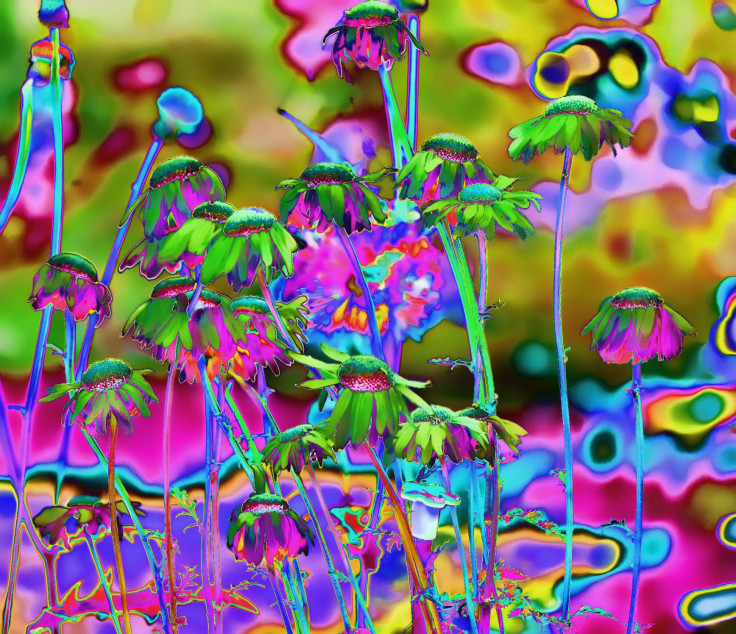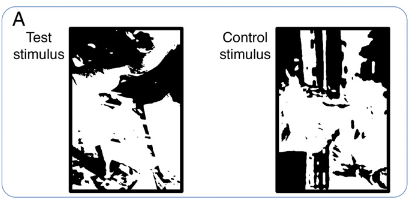I Can't Feel My Face: Hallucinations Happen When We Rely On Previous Knowledge To Make Sense Of The World

Hallucinations have the power to be quite terrifying. Not knowing the difference between what’s real and what isn’t can cause serious mental distress, paranoia, and anxiety.
One of the most common causes of hallucinogenic experiences is psychosis, a disorder characterized by a disconnect with reality. Patients experiencing psychosis have difficulty interpreting stimulus and making sense of the world, meaning normal activities or people can appear threatening or unnerving. Psychosis can also be accompanied by perceptual changes, sometimes to the extent that patients see, hear, or feel things that aren’t really there. These are seen by others as hallucinations, which engender beliefs and thought processes in the patient that are difficult to comprehend.
People tend to associate hallucinations with mental illness and hallucinogenic drugs, and while psychosis is a very common cause of hallucinations, recent research has shown that altered perceptual experiences occur in many different kinds of people — not only those with a diagnosed mental illness.
“Many of us have heard or seen things that aren’t there,” said senior author Professor Paul Fletcher from the Department of Psychiatry at the University of Cambridge, in a press release.
The team of researchers based at Cardiff University and the University of Cambridge explored the idea that hallucinations are actually the product of an overactive normal tendency in humans: the way we interpret the world around us by making predictions and assumptions based on prior knowledge.
When we interact with and observe our physical environment, we as humans sometimes have to interpret potentially ambiguous and incomplete information we receive through the senses. Oftentimes, we only receive what would alone be insufficient information from, say, our visual system. With the help of previous knowledge, though, we can make sense of what we otherwise would not have been able to. For example, entering a living room and seeing a small, quick blur of black darting behind the sofa would normally not be enough information to determine what was going on. Knowing that we own a black cat, however, makes interpreting the movement easy, and we now know how to make sense of what we saw.
“Vision is a constructive process — in other words, our brain makes up the world we ‘see,’” said Dr. Christoph Teufel from the School of Psychology at Cardiff University and first author of the study. “It fills in the blanks, ignoring the things that don’t quite fit, and presents to us an image of the world that has been edited and made to fit with what we expect.”
Fletcher adds that having a predictive brain has made us efficient at creating a functional picture of what can, at times, be a very ambiguous and complex world. This ability, though, could have other effects.
“It also means that we are not very far from perceiving things that aren’t actually there, which is the definition of a hallucination,” he said.
To see if these predictive tendencies contribute to the emergence of psychosis, the scientists worked with two groups of volunteers. The first group of 18 had been referred to a mental health service and suffered from early signs of psychosis; the second group of 16 were mentally healthy. All of the volunteers viewed a series of black and white images with an ambiguous nature. Some of the images contained a person and some did not, and it fell to participants to distinguish which images did. The task was very difficult for all of the volunteers at first.

Both groups were then shown full color original images, including the ones from which the black and white images with people were derived. This information could potentially be used by the brain to make more sense of the ambiguous images. The researchers figured that those prone to hallucinations (the group with early signs of psychosis) would be better at using the information to distinguish the black and white images because hallucinations may come from an increased tendency to superimpose predictions on the world.

Just as they thought, the researchers found a bigger performance improvement in those referred to the mental health service in comparison with the healthy group. This suggested that the group prone to hallucinations really was more reliant on the information they had been given to help make sense of the black and white pictures.
Even when the experiment was repeated with a group of 40 healthy people, researchers saw a continuum in performance that correlated with the participants’ scores on a test of psychosis-proneness. This means that even before the onset of psychotic symptoms, a shift in information processing that relies on prior knowledge instead of sensory input can be detected.
The findings are significant, said Naresh Subramaniam from the Department of Psychiatry at the University of Cambridge, because they show that an altered balance of normal brain functions is a possible explanation for the emergence of some key symptoms of mental health.
“Importantly, they also suggest that these symptoms and experiences do not reflect a ‘broken’ brain but rather one that is striving — in a very natural way — to make sense of incoming data that are ambiguous.”
Source: Teufel C, Subramaniam N, Dobler V, Perez J, Finnemann J, Mehta P, et al. Shift toward prior knowledge confers a perceptual advantage in early psychosis and psychosis –prone healthy individuals. Proceedings of the National Academy of Sciences. 2015.



























